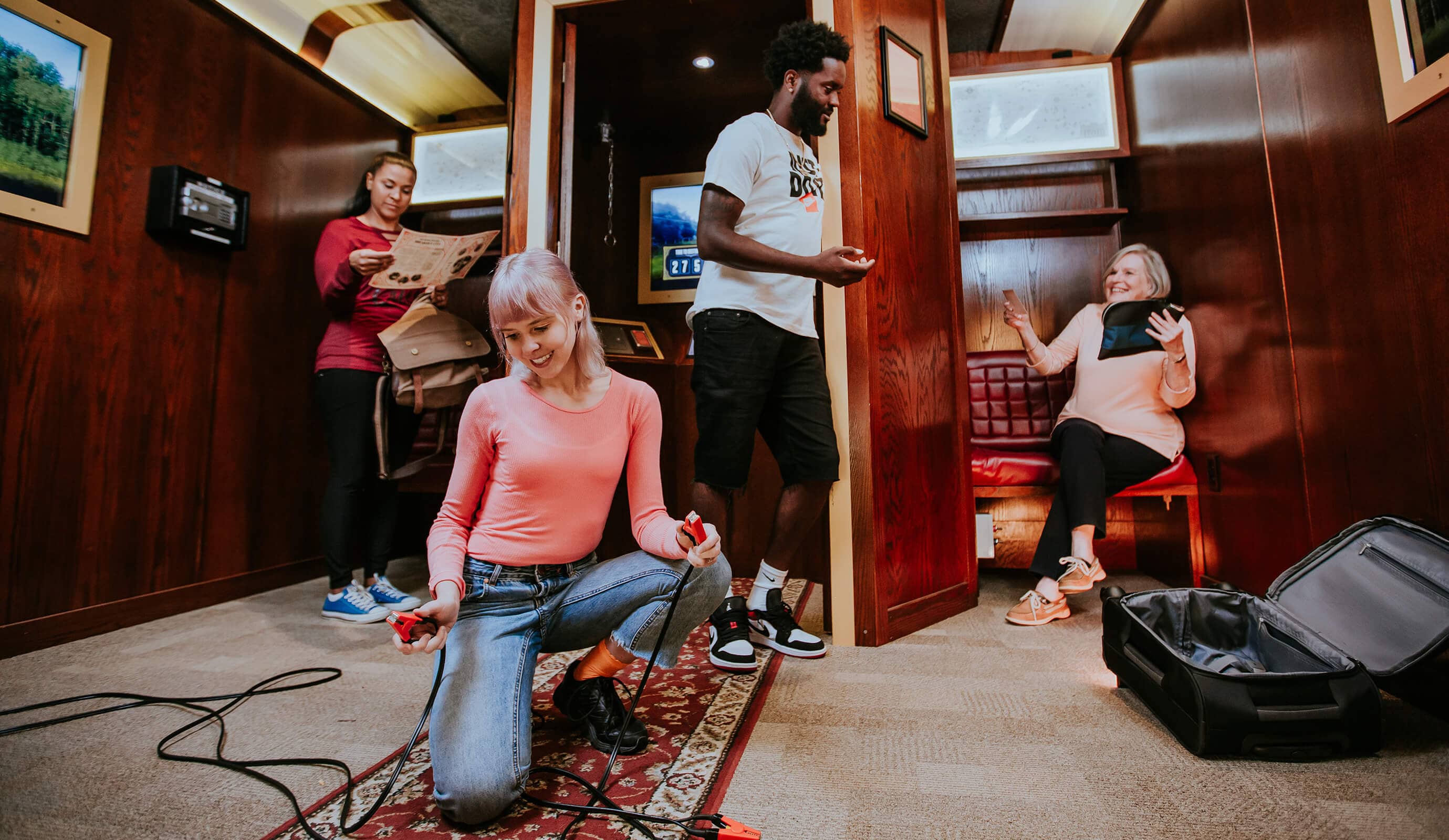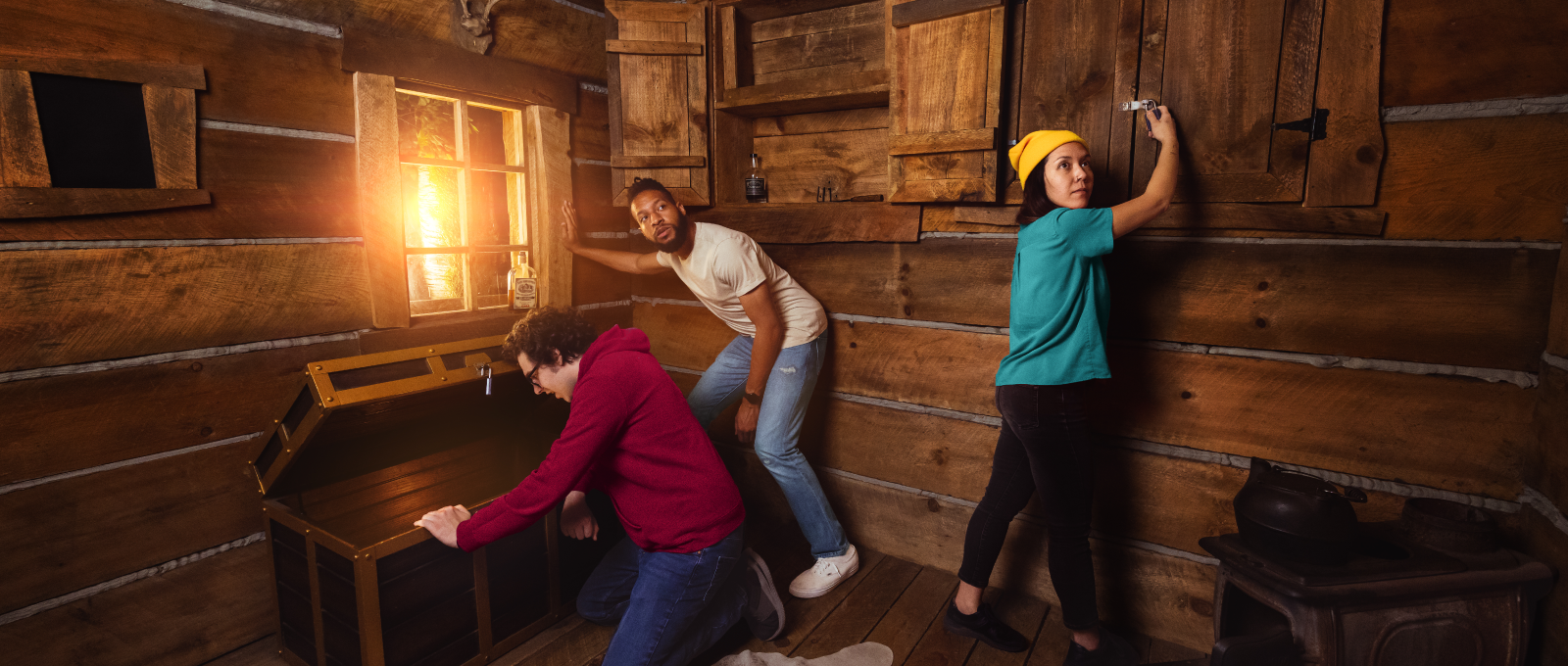Minneapolis Escape Room-- Amazing Challenge Obstacles for All Ages
Minneapolis Escape Room-- Amazing Challenge Obstacles for All Ages
Blog Article
Group Methods: Just How to Work together Efficiently in a Retreat Area
Browsing the complexities of a retreat area demands greater than simple excitement; it requires a well-coordinated approach based in clear communication, calculated duty assignments, and experienced time monitoring. Teams should actively listen to every member's insights, appoint duties that straighten with individual staminas, and keep normal check-ins to ensure emphasis and protect against redundancy. By fostering an environment that values communication and adaptability, groups can significantly heighten their efficiency and success prices. The subtleties of these strategies can transform the experience, but just how exactly can they be applied to make the most of the capacity for success?
Establish Clear Communication

To assist in clear interaction, it is vital to mark a central factor of call for info circulation. This role involves summarizing searchings for and recommended techniques to ensure everybody remains on the exact same web page. Furthermore, adopting a systematic approach to conversations can avoid disorderly exchanges. Brief, concentrated updates from each team participant can keep the team educated without overwhelming them with details - best escape room.

Assign Duties Purposefully
While clear communication sets the structure for efficient teamwork, assigning duties strategically makes sure that each team member's toughness are utilized successfully. In an escape room situation, the time-sensitive and complex nature of challenges demands an efficient approach to task delegation. By recognizing and leveraging individual competencies, groups can enhance their problem-solving capacities and enhance total efficiency.
A person with a keen eye for detail could succeed in finding concealed objects, while a sensible thinker can be much better matched to resolving challenges. This duty often needs solid organizational and social skills.
Second, make certain that roles are adaptable and versatile. As new challenges arise, the group should be able to pivot, reapportioning jobs as required. This versatility helps preserve momentum and protects against traffic jams that might happen as a result of inflexible duty projects.
Inevitably, a calculated strategy to duty task not just maximizes the toughness of each employee however also promotes a natural environment, driving the group in the direction of an effective getaway.
Make Use Of Diverse Skills
Recognizing and utilizing the diverse abilities within your group can dramatically boost your performance in a retreat space. Each group participant brings one-of-a-kind staminas to the table, and properly leveraging these abilities can accelerate analytical and enhance general efficiency. For example, an employee with strong analytical skills could stand out at analyzing intricate codes or patterns, while another with keen empirical capacities may promptly spot hidden hints that others might ignore.
Urge group members to articulate their insights and concepts quickly, making sure that all prospective remedies are thought about. Furthermore, assigning tasks that align with each member's strengths can protect against traffic jams and make sure that development is constant.
In addition, variety in abilities usually equates to diversity in thinking styles, which is invaluable in an escape room setting. While some challenges might call for sensible thinking and precision, others could benefit from imaginative and association of ideas. By acknowledging and leveraging this diversity, groups can deal with a wider variety of difficulties better, therefore raising their chances of an effective escape.
Manage Time Successfully

Identify visible challenges and divide jobs based on team members' staminas, ensuring that no one is still. This technique can help keep the group concentrated additional reading and prevent time from slipping away undetected.
Additionally, avoid tunnel vision. If a challenge is taking too long, rotate employee or proceed to one more difficulty, returning later with fresh perspectives. Communication is critical-- keep everyone upgraded on solved puzzles and continuing to be jobs to avoid redundant efforts.
Finally, utilize any tips or hints sparingly however purposefully - best escape room. Recognizing when to request assistance can save useful time. By adhering to these time monitoring principles, groups can considerably boost their possibilities of a successful and satisfying retreat room experience
Debrief and Show
Reflection is a crucial aspect of group development and renovation in the context of escape spaces. As soon as the obstacle is finished, whether effectively or not, it is essential for the team to participate in an organized debriefing session. This process permits staff member to assess their performance, identify strengths, and determine areas for renovation.
Start the debrief by reviewing what went well. Highlight particular instances of effective interaction, analytic, and partnership. Acknowledging these favorable behaviors strengthens them and urges their rep in future obstacles.
Following, address the barriers ran into. Discuss minutes of complication, miscommunication, or ineffective strategies. Urge an open and useful discussion where group participants can share their perspectives without worry of objection. This promotes a culture of constant enhancement and discovering.
Verdict
In final thought, effective cooperation in an escape area is predicated upon clear interaction, tactical role assignments, the effective application of diverse abilities, and proficient time management. By producing a natural and flexible team setting, the Going Here probability of successfully solving problems and accomplishing the purpose of escaping the room is dramatically improved.
Report this page